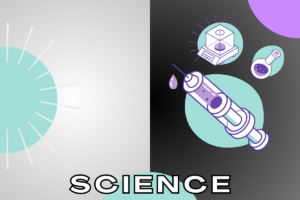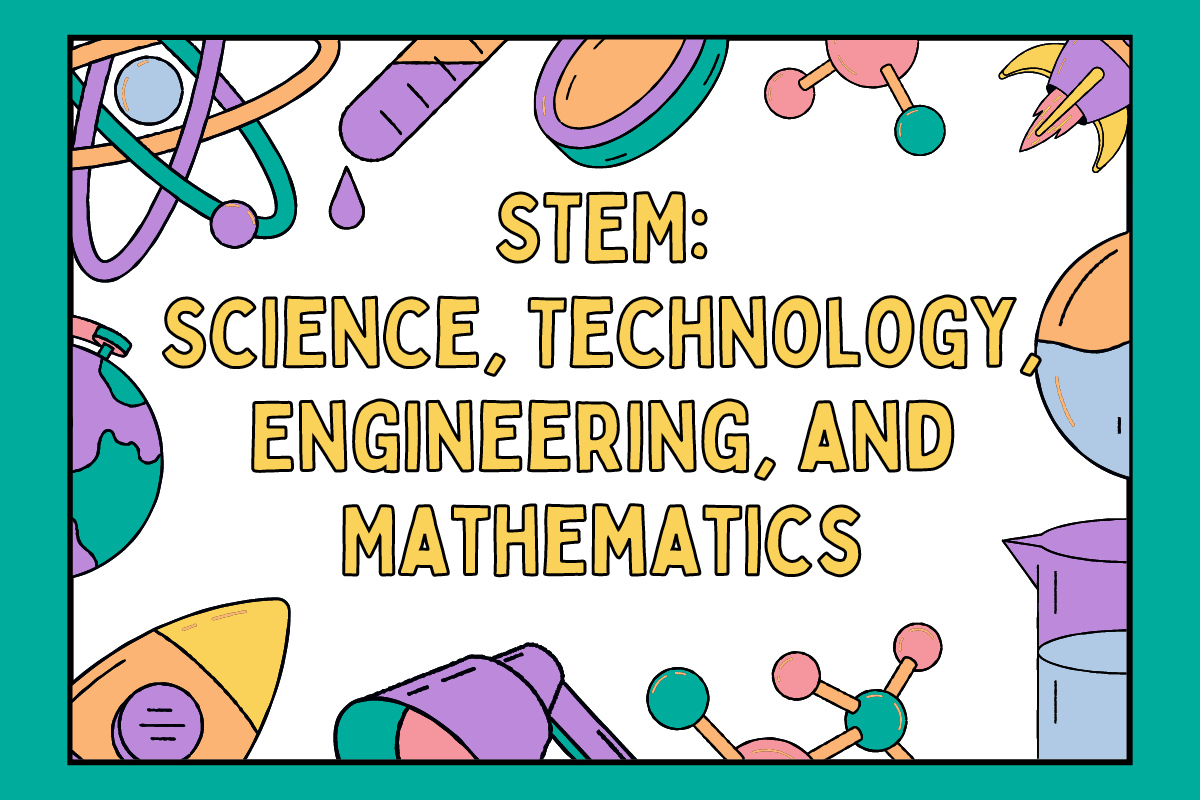What Does STEM Stand For?
STEM (science, technology, engineering, and mathematics) education has become increasingly important in today’s rapidly evolving world. STEM fields are essential for driving innovation, economic growth, and solving complex global challenges. This introductory paragraph will explore the significance of STEM education, its impact on society, and why it should be a priority in our educational systems. By understanding the importance of STEM, we can better equip students with the skills and knowledge they need to succeed in the 21st century and shape a brighter future for future generations.
The STEM fields are essential to the modern world and are vital in driving innovation and economic growth. For instance, the development of smartphones, medical devices, and renewable energy sources are all products of STEM. STEM professionals, such as software engineers and biomedical researchers, are in high demand and earn some of the highest salaries in the job market.
Read More Articles: Clark County Education Association: Advocating for Educators and Students
The STEM fields are:
Science: 
Science is a systematic and organized body of knowledge about the natural world acquired through observation, experimentation, and hypothesis testing. It encompasses various disciplines, including biology, chemistry, physics, astronomy, and earth science. Critical aspects of science include:
Methodological approach: Science follows a rigorous and systematic approach involving observation, hypothesis formulation, experimentation, and data analysis to establish knowledge.
Objectivity and evidence-based: Science is based on objective evidence and data rather than subjective beliefs or opinions.
Hypothesis testing: Scientists formulate hypotheses and conduct experiments to test them, aiming to verify or refute predictions made by the hypotheses.
Replication and peer review: Scientific findings are subject to replication by other scientists and undergo peer review to ensure reliability and validity.
Science has contributed significantly to our understanding of the natural world, leading to numerous technological advancements and improvements in our lives.
Some notable achievements and contributions of science include:
Medical advancements: Science has led to medical breakthroughs, including developing vaccines, antibiotics, and treatments for various diseases, which have significantly improved public health and life expectancy.
Technological innovations: Science has driven technological advancements, such as the development of computers, the internet, and space exploration, transforming various aspects of society and daily life.
Environmental understanding: Science has provided insights into the natural world, including the earth’s climate, ecosystems, and biodiversity, helping us understand and address environmental challenges.
Improved agricultural practices: Science has enabled the development of new farming techniques and crop varieties, leading to increased food production and improved nutrition.
Scientific knowledge and advancements are vital in addressing global challenges, improving human well-being, and shaping the future.
Technology
Technology encompasses a wide range of tools, techniques, and systems developed and used to solve problems and accomplish tasks. It includes physical devices and software, as well as the knowledge and skills needed to use them.
Critical aspects of technology include:
- Innovation and research: Technology is driven by innovation and research, as scientists and engineers work to develop new materials, techniques, and applications.
- Problem-solving: Technology solves various problems and challenges, making tasks more accessible, efficient, or possible.
- Communication and information sharing: Technology has revolutionized communication and information sharing, enabling people to connect and access information globally.
- Automation and efficiency: Technology can automate tasks and processes, increasing efficiency and productivity in various fields.
- Enhancement of human capabilities: Technology can enhance human capabilities, providing tools and assistive devices that improve mobility, cognitive abilities, and other aspects of life.
Technology has a profound impact on society and has transformed various aspects of modern life, including:
- Healthcare: Technology has led to advancements in medical devices, treatments, and diagnostics, improving healthcare outcomes and saving lives.
- Education: Technology has revolutionized education, providing access to online learning, interactive tools, and personalized learning experiences.
- Communication: Technology has transformed communication, enabling instant messaging, video conferencing, and global connectivity.
- Transportation: Technology has revolutionized transportation by developing cars, airplanes, trains, and other transportation systems.
- Manufacturing: Technology has automated and optimized manufacturing processes, improving efficiency and productivity in various industries.
The rapid pace of technological advancement and innovation continues to shape the future, as technology plays a crucial role in addressing global challenges and improving the quality of life.
Engineering:
Engineering is the application of scientific and mathematical principles to design, build, and maintain structures, machines, and systems. It encompasses various disciplines, including civil, mechanical, electrical, chemical, and computer engineering.
Critical aspects of engineering include:
- Design and development: Engineers create designs and specifications for new products, processes, and systems, considering factors such as functionality, safety, and cost-effectiveness.
- Problem-solving: Engineering involves solving complex technical problems and finding practical solutions that meet specific requirements.
- Analysis and testing: Engineers analyze and test designs and prototypes to ensure they meet the desired performance and safety standards.
- Construction and maintenance: Engineers oversee the construction and maintenance of infrastructure, buildings, machines, and other systems, ensuring proper functioning and safety.
- Innovation and research: Engineering drives innovation and technological advancement by researching and developing new materials, techniques, and solutions.
Engineering profoundly impacts society, contributing to various aspects of modern life, including transportation, energy, communication, healthcare, and manufacturing. It is an essential field for addressing global challenges and improving the quality of life.
Some notable achievements and contributions of engineering include:
- The development of modern transportation systems, including cars, airplanes, trains, and ships, has revolutionized travel and trade.
- The construction of bridges, tunnels, and skyscrapers has enabled the expansion of cities and improved infrastructure.
- The invention of computers and the internet has transformed communication, information sharing, and economic activities.
- The development of medical devices and technologies has dramatically improved healthcare and saved countless lives.
- The creation of renewable energy sources, such as solar and wind power, has contributed to sustainability and reduced reliance on fossil fuels.
Engineering plays a vital role in shaping the future as engineers work on advancements in artificial intelligence, robotics, biotechnology, and space exploration.
Mathematics:
Mathematics is a fundamental field of study that deals with numbers, quantities, and space and their interrelationships. It is often referred to as the language of the universe due to its ability to describe and explain a wide range of phenomena in the natural world. Mathematics is a diverse and broad discipline that includes various branches such as algebra, geometry, calculus, statistics, and number theory.
Critical aspects of mathematics include:
- Numeracy: Mathematics is essential for understanding and working with numbers, including arithmetic operations, fractions, decimals, and percentages.
- Problem-solving: Mathematics teaches logical reasoning and problem-solving skills, which are valuable in various life and career fields.
- Patterns and relationships: Mathematics explores patterns, structures, and relationships within numbers and shapes, providing insights into the underlying order of the world.
- Data analysis: Mathematics is crucial for collecting, organizing, analyzing, and interpreting data in science, economics, and social sciences.
- Mathematical modeling: Mathematics is used to model real-world problems and situations, helping to predict outcomes and make informed decisions.
Mathematics plays a vital role in various fields, including science, technology, engineering, economics, and many others. Its widespread applications impact daily life in numerous ways, making it an essential subject of study and research.
STEM fields are closely related and focus on problem-solving and critical thinking. They are also diverse and inclusive, welcoming individuals from all backgrounds and identities. STEM professionals are in high demand and earn some of the highest salaries in the job market. It’s important for everyone, regardless of their gender, race, or socioeconomic background, to feel empowered and encouraged to pursue STEM education and careers.
STEM Jobs
STEM jobs require a strong foundation in science, technology, engineering, and mathematics (STEM). These jobs are in high demand and offer competitive salaries and benefits. Some typical STEM jobs include:
- Computer and information technology: Computer programmers, software engineers, web developers, database administrators, network administrators
- Engineering: Civil engineers, mechanical engineers, electrical engineers, chemical engineers, materials engineers
- Life sciences: Biochemists, biologists, microbiologists, zoologists, botanists
- Mathematics and statistics: Actuaries, mathematicians, statisticians, data scientists
- Physical sciences: Chemists, physicists, astronomers, geologists, meteorologists
STEM jobs are essential for developing new technologies, products, and services. They also play a vital role in solving global challenges such as climate change, energy security, and poverty.
Benefits of STEM Jobs
- High demand: STEM jobs are in high demand, so plenty of employment opportunities exist.
- Competitive salaries: STEM jobs typically offer competitive wages and benefits.
- Job security: STEM jobs are generally considered secure, as they are essential for developing new technologies and products.
- Intellectual challenge: STEM jobs offer intellectual challenges and the opportunity to work on cutting-edge technologies and projects.
- Social impact: STEM jobs can positively impact society by helping to solve global challenges and improving people’s lives.
How to Get a STEM Job
To get a STEM job, you must have a strong foundation in STEM subjects. This can be achieved by taking STEM courses in school, pursuing a STEM degree, or taking online courses or workshops. You must also develop strong problem-solving, critical thinking, and communication skills.
If you are interested in a STEM career, many resources are available to help you get started. You can find information about STEM careers on the websites of the U.S. Department of Education and the National Science Foundation. You can also find information about STEM programs and scholarships on colleges and universities’ websites.
STEM jobs are essential for the future of our country and our world. By investing in STEM education, we can ensure that we have the skilled workforce to compete in the global economy and solve the challenges of the 21st century.
STEM is important for several reasons:
1. STEM skills are not only essential for the 21st-century workforce, but they also offer exciting opportunities. STEM jobs are in high demand and offer some of the highest salaries. Acquiring STEM skills can open doors to a rewarding and well-compensated career, while also fostering critical thinking, problem-solving, and creativity, which are essential for any job.
2. STEM is not just about personal success and economic growth. It’s about making a difference in the world. STEM fields are responsible for many technological advancements that have improved our lives, such as the internet, smartphones, and medical breakthroughs. But more importantly, STEM professionals are essential for developing solutions to global challenges like climate change and energy security. By pursuing STEM, you can be part of the solution.
3. STEM helps us understand the world around us. STEM fields provide us with the knowledge and tools to understand the natural world and our place in it. STEM also helps us to develop new technologies and solutions to improve our lives.
In short, STEM is important because it provides students with the skills they need to succeed in the 21st-century workforce, drives innovation and economic growth, and helps us understand the world around us.
Here are some specific examples of how STEM is important:
- STEM skills are essential for developing new technologies like self-driving cars and renewable energy sources.
- STEM professionals are necessary for solving global challenges like climate change and poverty.
- STEM education helps students develop critical thinking and problem-solving skills necessary for success in any career.
- STEM fields provide us with the knowledge and tools to understand the natural world and our place in it.
STEM is a vital field that plays a significant role in our society. It is essential to support STEM education and research so that we can continue to reap the benefits of STEM in the future.
How can I get involved in STEM?
There are many ways to get involved in STEM. You can take STEM courses in school, join a STEM club, or participate in a STEM competition. You can also visit a science museum or attend a STEM workshop.
If you are interested in a career in STEM, many resources are available to help you get started. You can find information about STEM careers on the websites of the U.S. Department of Education and the National Science Foundation. You can also find information about STEM programs and scholarships on colleges and universities’ websites.
There are many ways for students and adults to get involved in STEM.
For students:
- Take STEM courses in school. Most schools offer a variety of STEM courses, including science, technology, engineering, and mathematics. These courses will give you a strong foundation in STEM subjects and help you develop the skills you need to succeed in a STEM career.
- Join a STEM club or organization. Many schools and communities have STEM clubs and organizations that provide students with opportunities to explore STEM topics in a fun and engaging way. These clubs and organizations often offer activities such as guest speakers, field trips, and competitions.
- Participate in a STEM competition. There are many STEM competitions available for students of all ages. These competitions can be a great way to test your STEM skills and knowledge and to learn about new STEM topics.
- Visit a science museum or attend a STEM workshop. Science museums and STEM workshops offer a variety of hands-on activities and exhibits that can help you learn about STEM topics in a fun and interactive way.
For adults:
- Take a STEM course at a local college or university. Many colleges and universities offer STEM courses for adult learners. These courses can help you to update your STEM skills or to learn new STEM topics.
- Join a STEM organization or club. There are many STEM organizations and clubs for adults. These organizations and clubs offer a variety of activities and events that can help you to stay up-to-date on STEM topics and to network with other STEM professionals.
- Volunteer your STEM skills. There are many opportunities to volunteer your STEM skills to help others. For example, you could volunteer to tutor students in STEM subjects or help at a science museum.
- Attend a STEM conference or workshop. STEM conferences and seminars offer an excellent opportunity to learn about new STEM topics and to network with other STEM professionals.
No matter your age or background, there are many ways to get involved in STEM. By getting involved in STEM, you can learn new skills, explore new interests, and make a difference.
Conclusion
If you are interested in a career in STEM, many resources are available to help you get started. You can find information about STEM careers on the websites of the U.S. Department of Education and the National Science Foundation. You can also find information about STEM programs and scholarships on colleges and universities’ websites.
No matter your age or background, there are many ways to get involved in STEM. By getting involved in STEM, you can learn new skills, explore new interests, and make a difference.
STEM is essential for our future. It is the key to solving the world’s most pressing challenges, such as climate change, poverty, and disease. By investing in STEM education and research, we can ensure that our future is bright.
FAQ
Q: What is STEM?
A: STEM is an acronym for science, technology, engineering, and mathematics.
Q: Why is STEM important?
A: STEM is important because it gives students the skills to succeed in the 21st-century workforce, drives innovation and economic growth, and helps us understand the world.
Q: How can I get involved in STEM?
A: There are many ways for students and adults to get involved in STEM. For students, some options include taking STEM courses in school, joining a STEM club or organization, and participating in a STEM competition. For adults, some options include taking a STEM course at a local college or university, joining a STEM organization or club, and volunteering your STEM skills.
Q: What are some examples of STEM careers?
A: Some examples of STEM careers include:
- Scientist
- Engineer
- Mathematician
- Computer programmer
- Doctor
- Nurse
- Teacher
- Architect
- Pilot
- Astronaut
Q: What are some benefits of a STEM education?
A: Some benefits of a STEM education include:
- Increased problem-solving skills
- Improved critical thinking skills
- Enhanced communication skills
- Greater creativity
- Higher salaries
Q: What are some challenges facing STEM education?
A: Some challenges facing STEM education include:
- Lack of qualified STEM teachers
- Outdated STEM curriculum
- Lack of access to STEM resources
- Negative stereotypes about STEM
Q: What can be done to improve STEM education?
A: Some things that can be done to improve STEM education include:
- Providing more funding for STEM education
- Recruiting and training more qualified STEM teachers
- Updating STEM curriculum
- Increasing access to STEM resources
- Challenging negative stereotypes about STEM
STEM is a vital field that plays a significant role in our society. It is essential to support STEM education and research so that we can continue to reap the benefits of STEM in the future.


